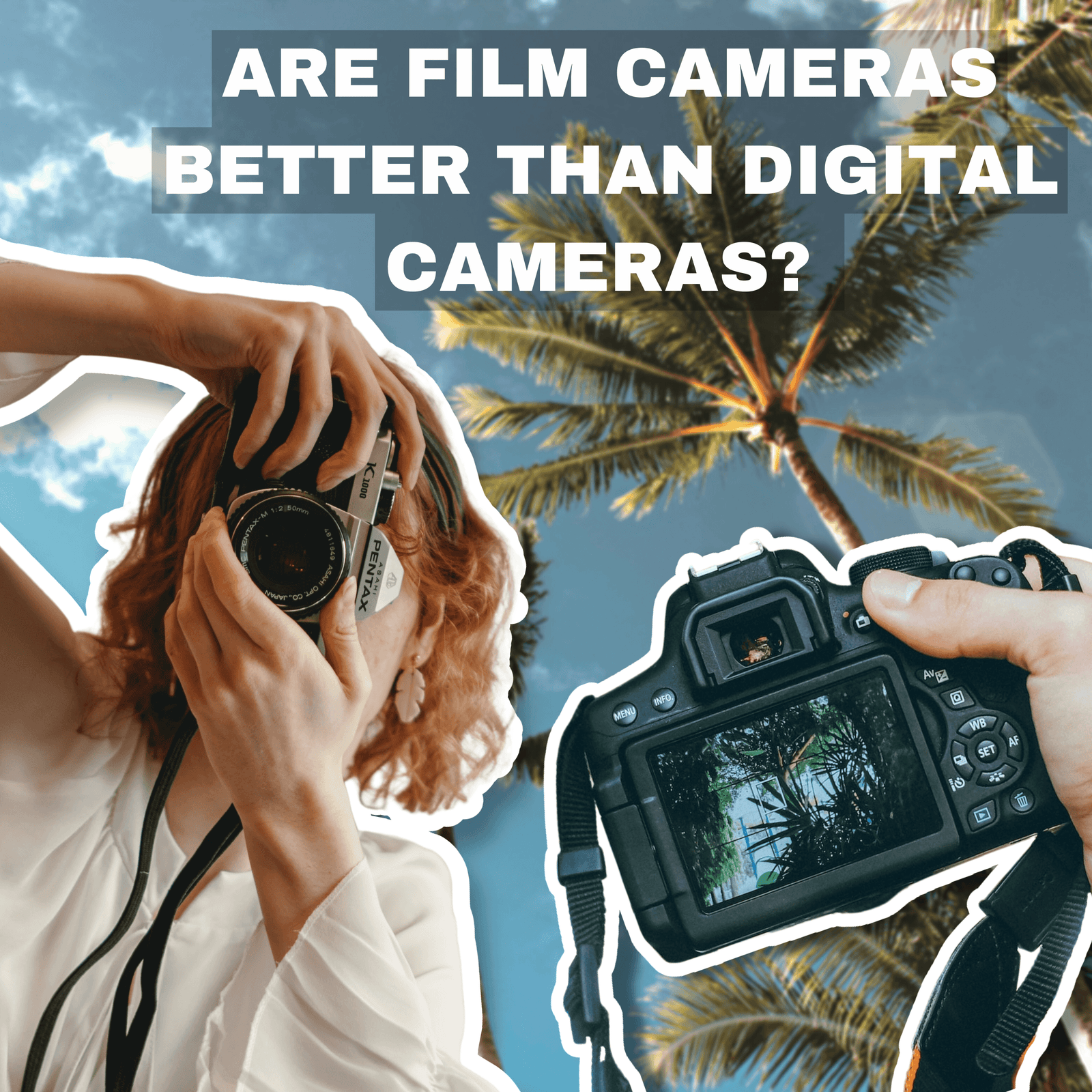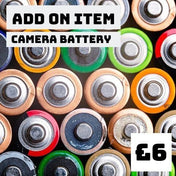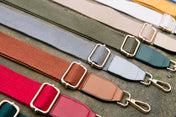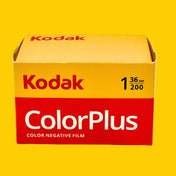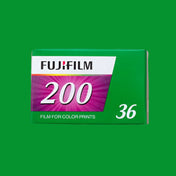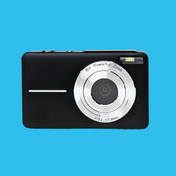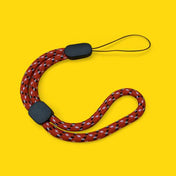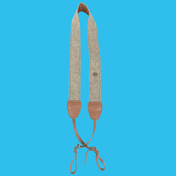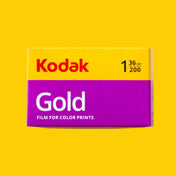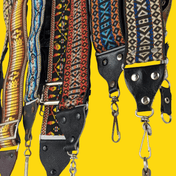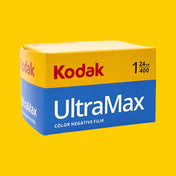
All photographers, whether amateur, hobbyist, professional, or somewhere in between, will at some point be faced with one big question: film or digital?
Film and digital are the two primary ways that you can capture images and there are positives and negatives to both analog photography and digital photography. Keep reading to learn more about the difference between film vs. digital photography and to get guidance about which option is best for you.
So what's the core difference between Digital and Film photography?
It all comes down to the technology and media used to capture an image. Film photography uses film (a thin strip of plastic or other material that’s sensitive to light) to take and store pictures. In digital photography, a digital sensor in a camera, phone, or other device captures the image, which is then stored in the device’s memory.
Film is the origin of photography and videography, therefore film is the traditional medium. Digital is modern technology and has become the preferred method for many people over time. Any time you take a photo on your phone, for example, you’re using digital photography. At this point, it’s practically second nature.
However, with the resurgence of Film, you may still find yourself contemplating the question of film vs. digital. In this blog, we can help you decide the key differences between film and Digital to get a better understanding on why we love film photography.

Film Advantages
There are a few advantages of film photography over digital photography:
- There can be a lower initial cost for a film camera than for a comparable digital camera.
- Film delivers a higher dynamic range, which makes it better at capturing detail in whites and blacks.
- Film photography is more forgiving of minor focusing issues and exposure problems.
- A film camera often has a higher resolution than what is found in most digital cameras.
- Film photographers with a limited number of exposures available on a roll of the film must think more about their images before shooting them. Digital photographers tend to take pictures first and think later. Depending on your viewpoint, this is either an advantage or a disadvantage.
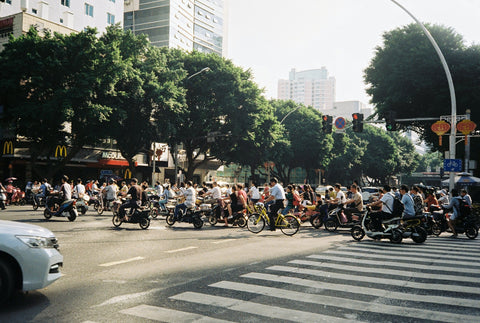
Photo by cins . on Unsplash
Film Disadvantages
Some of the disadvantages of film photography are:
- Film storage takes up a lot of physical space.
- Purchasing and developing film is a continuing cost.
- The film must be developed before viewing, so you can end up developing poor photo captures or images taken unintentionally.
- Unless you have a darkroom, the photographer is dependent on a lab to develop the images.

Digital Advantages
The advantages of digital cameras and photography include:
- The resolution of a point-and-shoot camera, which is often 12 to 20 megapixels, is a high enough resolution for large prints.
- A digital camera is usually lighter in weight than a film camera.
- Memory cards are tiny so they don't require much storage space. One memory card can store more images than a dozen rolls of film.
- The images from a digital camera can be viewed immediately.
- You can choose to print only the images you like best.
- There is instant gratification with a digital camera. This can be an advantage or a disadvantage, depending on your perspective.

Digital Disadvantages
Some of the disadvantages of digital photography and cameras include:
- Digital photography usually requires computer skills to manage and edit images.
- The initial cost for a digital camera is usually higher than for a comparable film camera.
- Digital images easily lose detail in whites and blacks.
- Some digital cameras are difficult to focus.
- Digital images are less subtle than film images.
- Digital cameras become obsolete much faster than film cameras.
- The digital storage can be lost; backups are absolutely necessary.
- Many digital cameras do a poorer job focusing in low light than film cameras.
- Digital cameras are bigger consumers of batteries than film cameras. Digital photographers need to keep extra batteries on hand to ensure the camera stays charged.

In the end, digital and film cameras both take high-quality images. Choose the one that fits your photographic style, budget, and needs.

Film cameras to get you started
If this inspired you to try out film photography we have several blogs discussing how to guides for film photography. We have a recommendation list for film cameras to travel with but we can also suggest a few options here.

